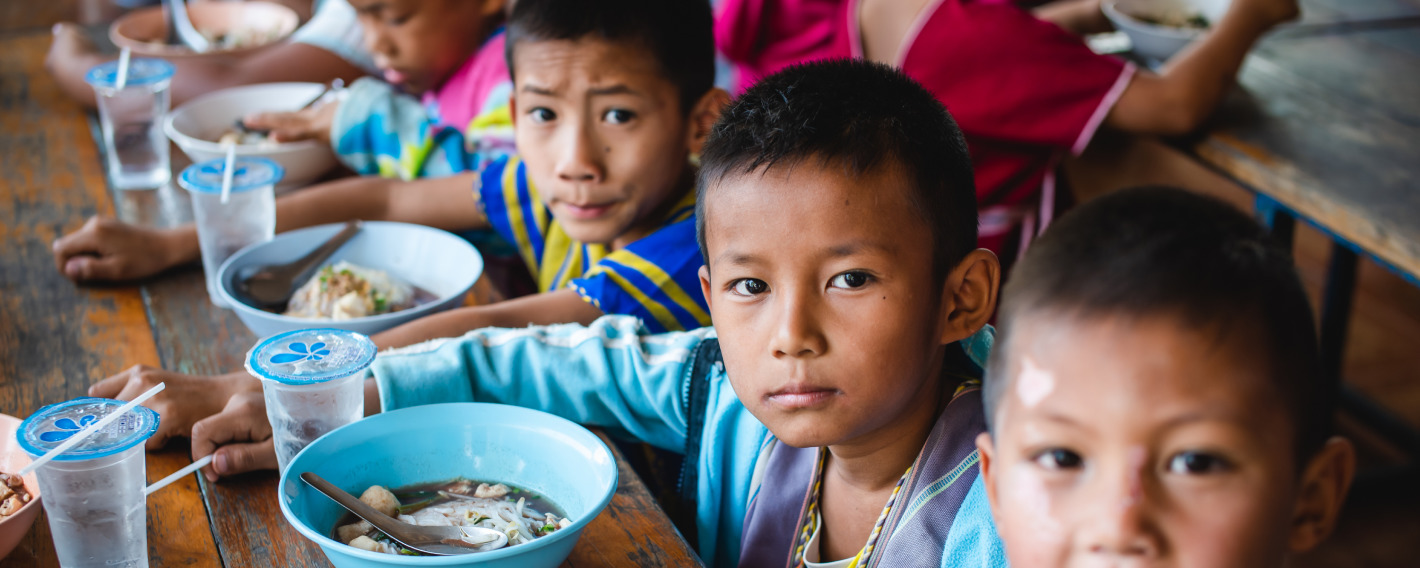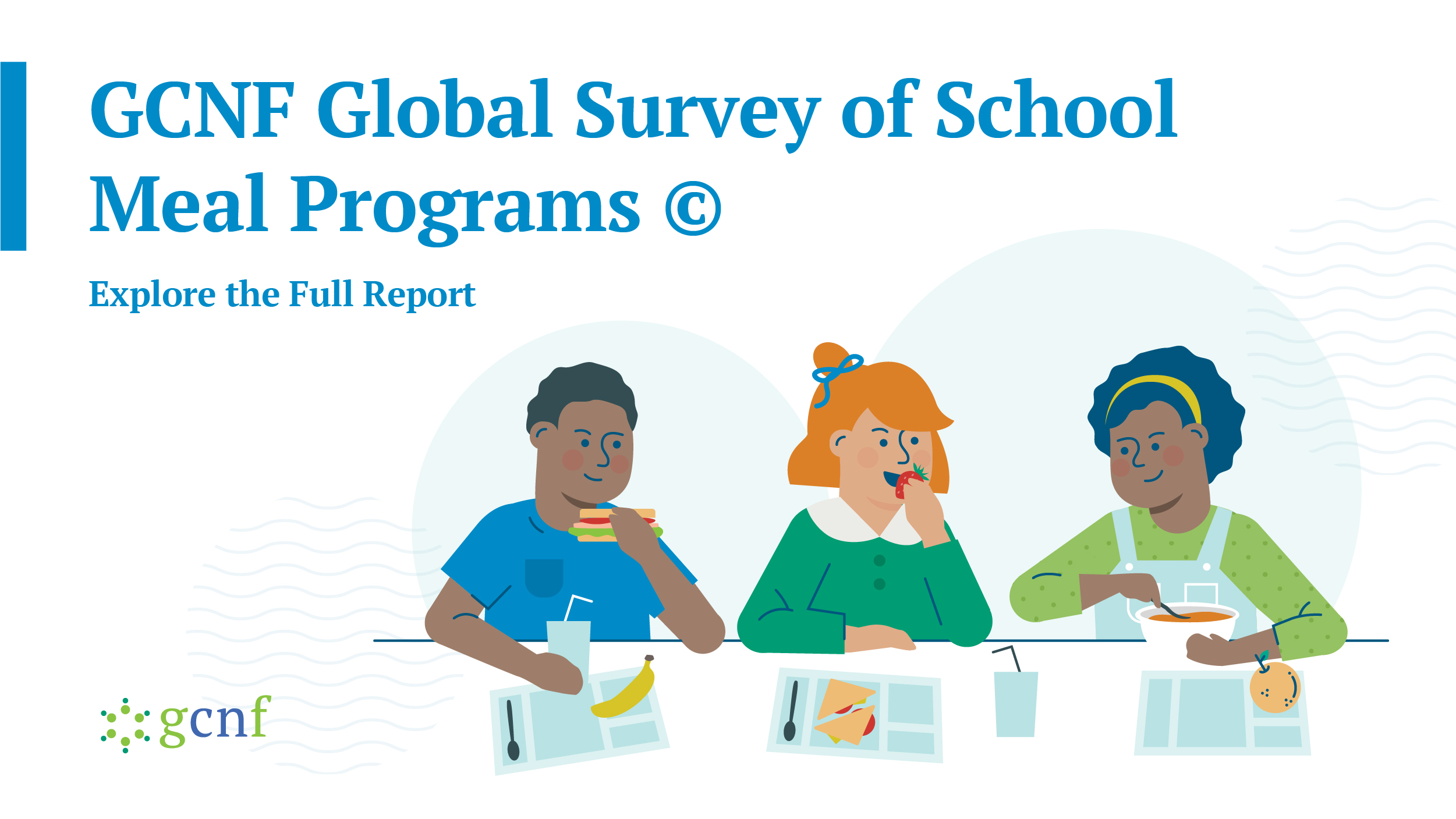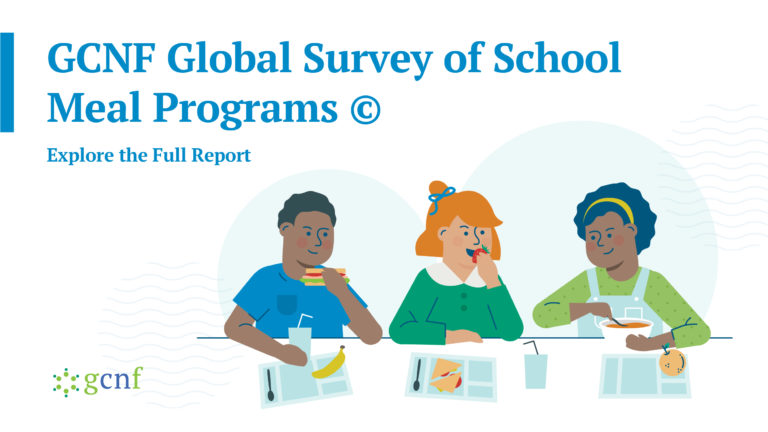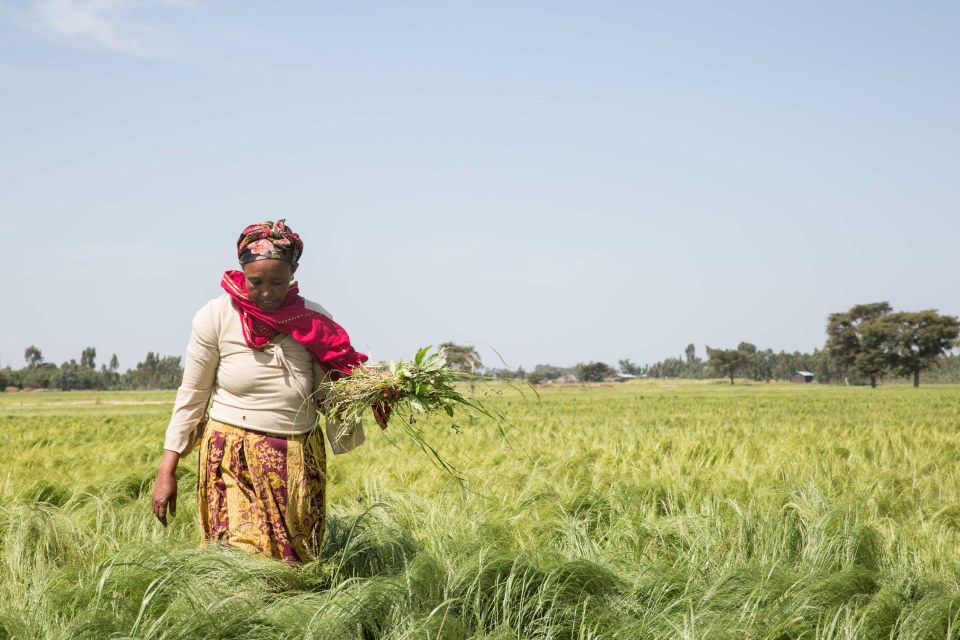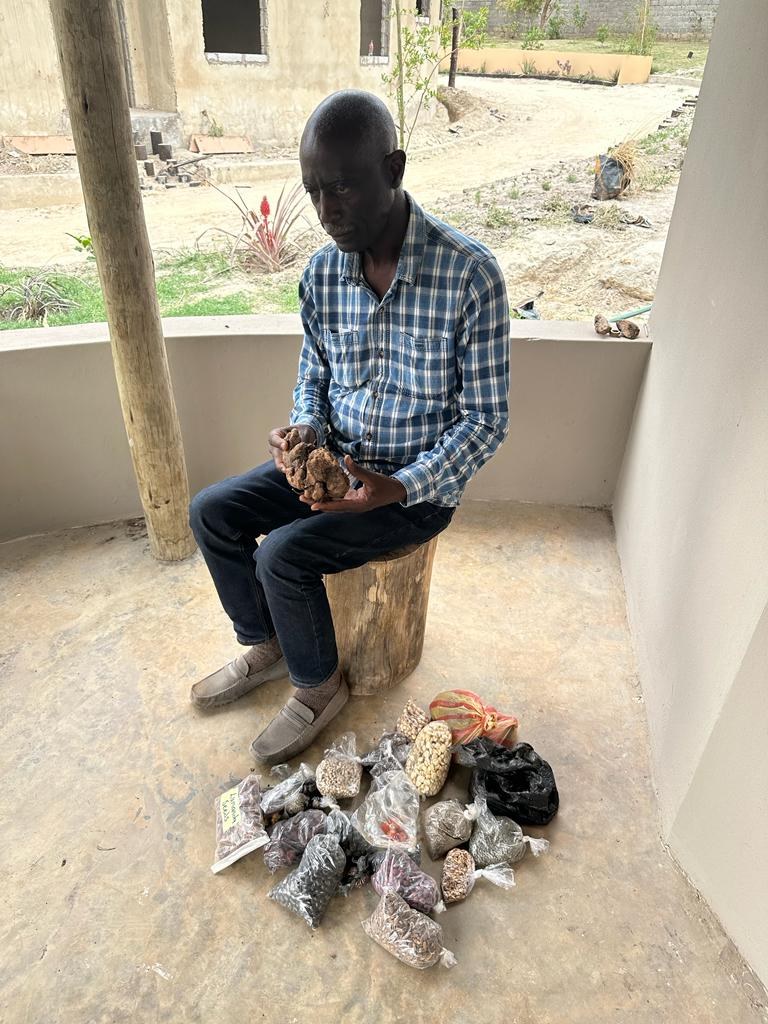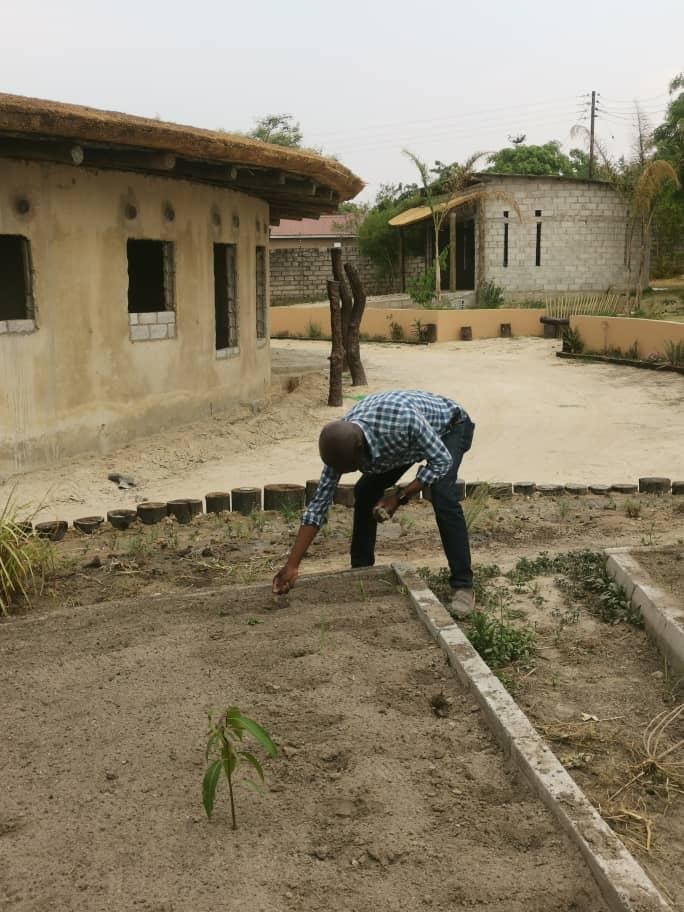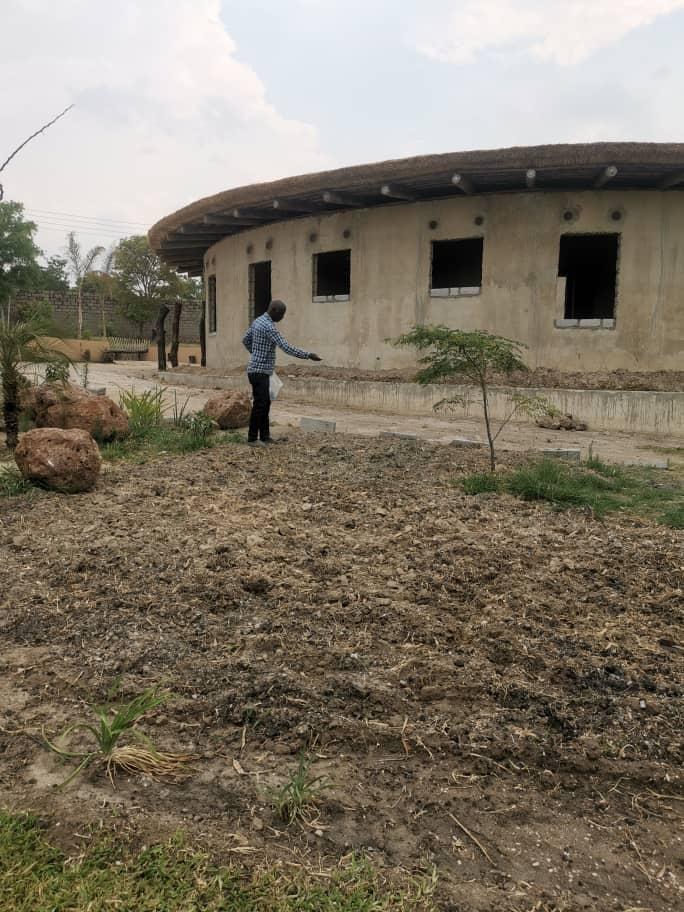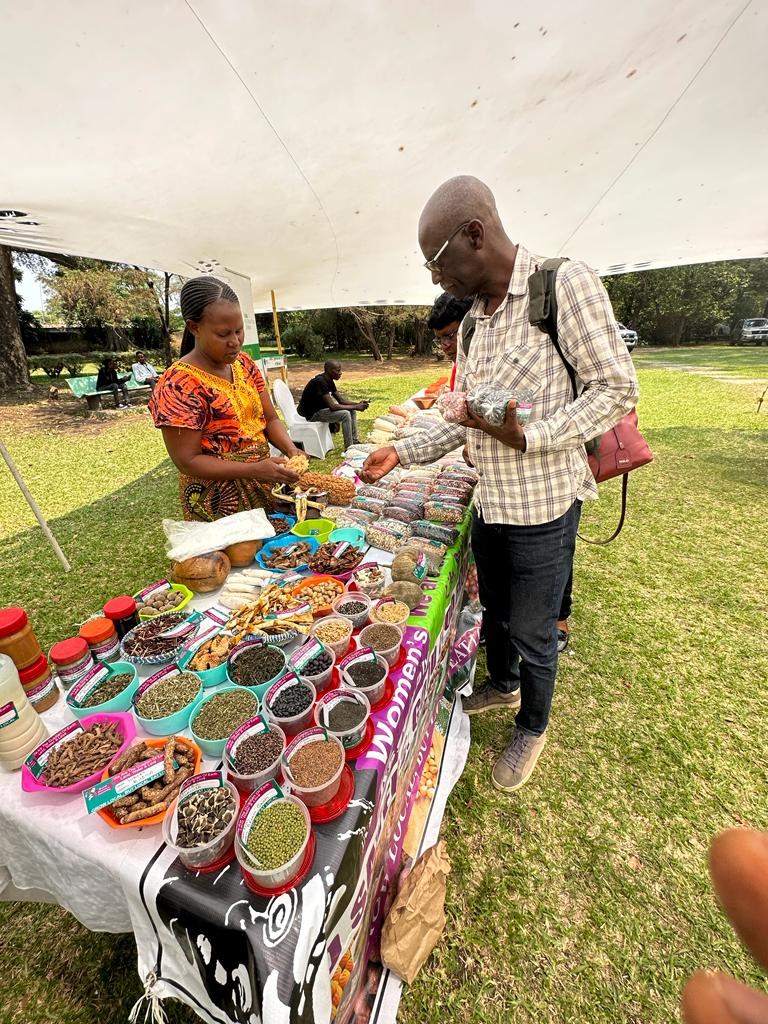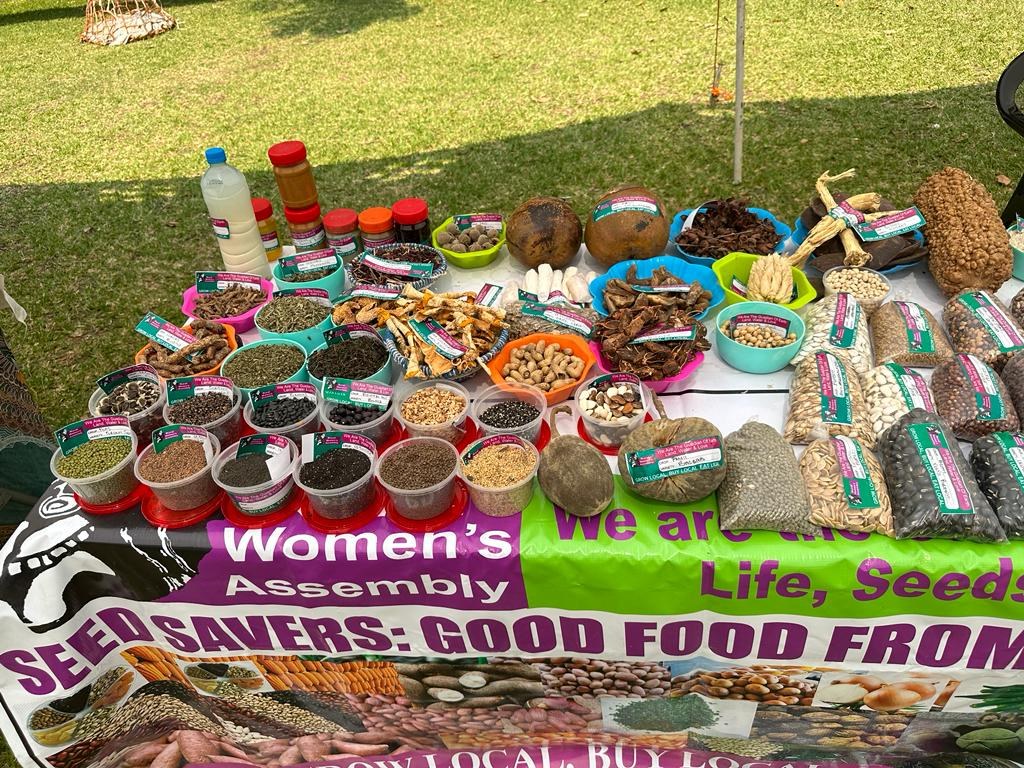GCNF conducts second round Global Survey of School Meal Programs, capturing world-wide impact of COVID-19 on school meals and child nutrition
SEATTLE, WA – School meal programs — in which students are provided with snacks, meals, or other foods in or through schools — are common worldwide. While country-supported school meals are almost universally embraced globally, standardized information about these programs has not been collected and published regularly, until now. The Global Child Nutrition Foundation’s (GCNF) inaugural Global Survey of School Meal Programs © established a unique global database of standardized information on school meal programs, covering all related sectors and activities.
GCNF is now collecting a second round of data for the Global Survey of School Meal Programs ©, capturing the impact of the pandemic for at least one full school year. As schools closed due to the pandemic, from Honduras to the United States to Senegal to Cambodia, many families’ access to school feeding programs that have been important sources of food and nutrition for their children and essential support for households was lost or limited. GCNF’s survey will help to measure and tell the story of the pandemic’s toll on the school food system, while also documenting the resilience and creativity of school meal programs in the face of such dramatic challenges.
“We know that the pandemic has had far-reaching and devastating effects on children, their nutrition, and their education,” said GCNF Executive Director Arlene Mitchell. “This survey will not only provide us with more specific information regarding the impact on school-age children and the programs that support their nutrition, it should also give us insights into which countries were better prepared to deal with this public health crisis and what would assist in planning for future emergencies of this type. We will use the survey results to support peer-to-peer sharing and learning amongst policy makers.”
This 2021 survey goes beyond simply counting how many meals are served or how many children are fed. Through the survey, GCNF will gather updated information regarding:
- The scope of school feeding in each country in the most recently completed school year Government financing of, and involvement in, school feeding
- Nutrition-, education-, and gender-related aspects of school feeding
- Job creation, and agricultural and private sector engagement
- Related health and sanitation topics
- The impact of emergencies, including the COVID-19 Pandemic
“No one’s done this before and I couldn’t, I kind of couldn’t believe it.” said Lawrence Haddad, Executive Director of GAIN and Chair of the UN Food Systems Summit’s Action Track 1, on the extensive data collected in the Global Survey of School Meal Programs. “No one has collected this data before in a systematic manner, given that these programs have been around so long, they have so much potential to do good. And so many countries have them. It seemed amazing to me that there isn’t a database on them.”
GCNF Global Survey Team members have begun reaching out to country governments around the world to begin completing questionnaires. The Global Survey of School Meal Programs Questionnaire may be completed online or in PDF format (with email submission). It is available in PDF format in Arabic, Chinese, English, French, Portuguese, Russian, and Spanish. The Survey Team will serve as virtual guides, to answer questions, and otherwise work with government-appointed Focal Points to complete the survey. Learn more about the Global Survey team.
The 2019 Global Survey drew responses from 103 countries representing 78% of the world’s population. Of these, 85 countries had at least one large-scale school feeding program and provided data for their most recently completed school year. The remaining 18 countries reported that they had no relevant program. Complete survey results and additional information can be found at www.gcnf.org. It is GCNF’s intention to update the Global Survey periodically (e.g., every two to three years) in order to track changes and identify trends in school feeding programs over time.
The Global Child Nutrition Foundation brings together a committed community of governments, civil society, and the private sector to ensure that hunger is not a barrier to learning for any child. Together we advocate for school feeding programs as a powerful investment in every child’s human capital; share best practices and research among our peers; and provide support through forging valuable partnerships and connecting resources to meet the needs of our network members.
###
Contact Information:
Global Child Nutrition Foundation
Rebecca Steelman
206-258-6749
rebecca@gcnf.org
Heidi Kessler
Senior Program & Operations Officer
Heidi@gcnf.org

